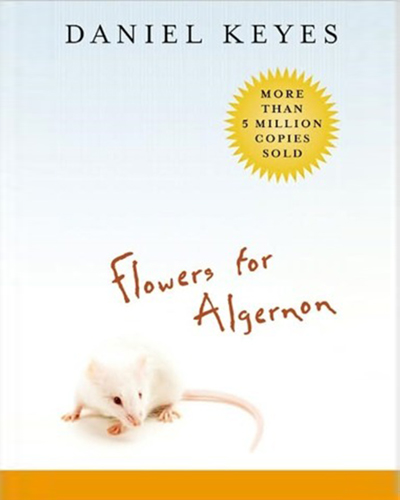
| Language | From $0.00 |
| Release Date | April 1, 1959 |
| Genre | Fiction |
| Author | Daniel Keyes |
| File Size | HarperCollins |
| Rating | (4.19) |
Flowers for Algernon tells the story of Charlie Gordon, a man with a low IQ who undergoes an experimental surgical procedure to increase his intelligence. The novel explores the consequences of this newfound intelligence on Charlie’s life, relationships, and understanding of the world around him.
Written in an epistolary format, the novel is composed of progress reports written by Charlie, allowing readers to witness his transformation and growth firsthand.
Published in 1966, the novel has maintained its popularity over the years, inspiring a film adaptation, stage play, and even a television series. Its themes and messages on intelligence, ethics, and the human condition continue to resonate with readers today.
Charlie is a gentle and hardworking man who seeks to better himself through education. His journey serves as the central focus of the novel, as readers witness his transformation and the effects it has on his life.
The two scientists responsible for the experimental procedure, Dr. Strauss and Prof. Nemur play crucial roles in the novel, representing both the potential and the danger of scientific advancements.
Charlie’s teacher and love interest, Alice serves as an emotional anchor for Charlie throughout his journey, demonstrating the importance of human connection.
The titular Algernon is a laboratory mouse who has also undergone the intelligence-enhancing procedure. His experiences serve as a parallel to Charlie’s own journey, offering insight into the potential consequences of the experiment.
As Charlie’s intelligence increases, so does his awareness of the cruelty and prejudice he faced as a person with a low IQ. The novel explores the emotional and psychological toll of this newfound knowledge.
The treatment of Charlie by his coworkers and even his own family serves as a commentary on society’s attitudes towards individuals with intellectual disabilities.
The novel raises questions about the ethics of conducting experiments on human subjects and the potential consequences of pushing scientific boundaries.
Flowers for Algernon delves into the complex relationship between memory, emotion, and intelligence, raising questions about what it truly means to be human.
Flowers for Algernon has faced numerous bans and challenges in schools due to its sexual content and themes of mental disability, raising important discussions about censorship in education.
The controversy surrounding the book highlights the ongoing debate about the role of censorship in literature and the responsibility of educators and authors in presenting challenging material to readers.
Despite its controversial status, Flowers for Algernon remains a beloved classic due to its powerful storytelling, complex characters, and thought-provoking themes.
Flowers for Algernon is a heart-wrenching and insightful novel that will resonate with readers who enjoy character-driven stories and those who are interested in themes of intelligence, ethics, and the human condition.